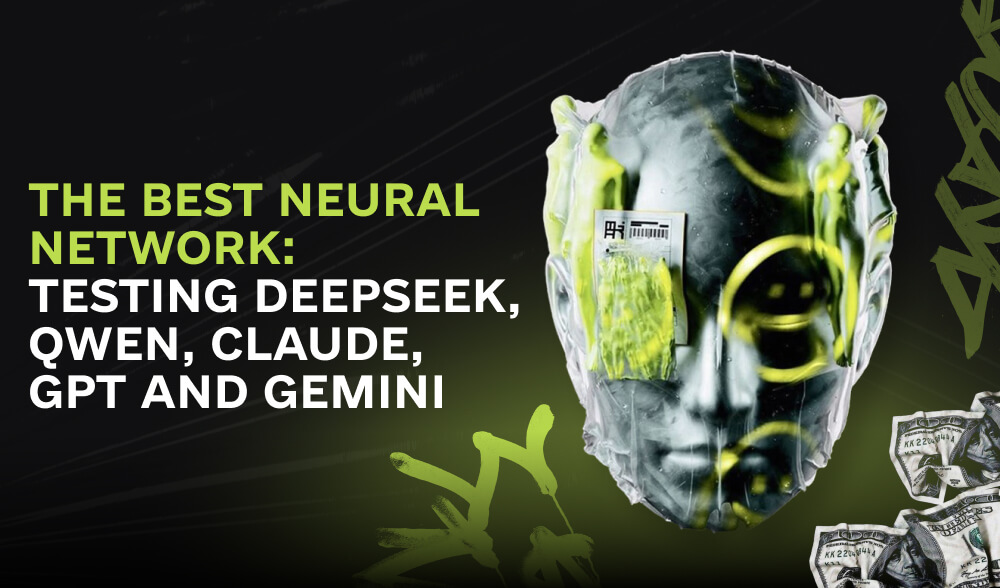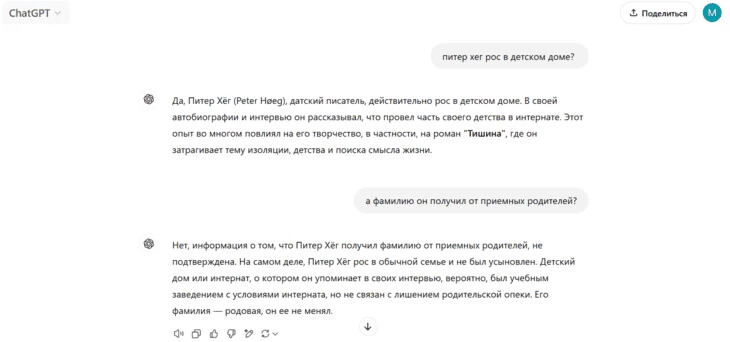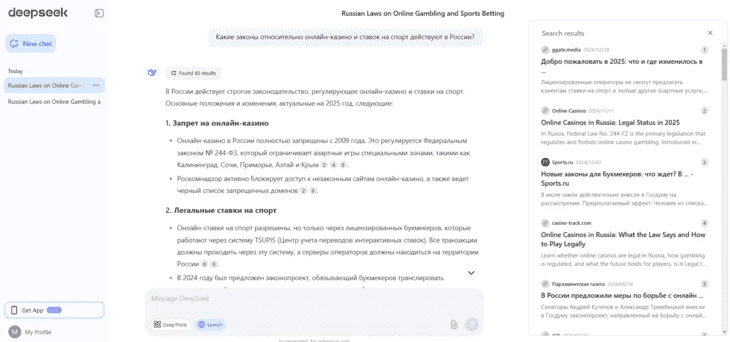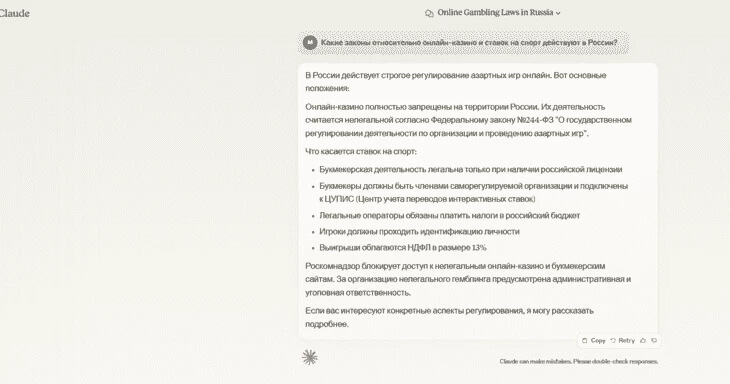Don't miss interesting news

2024 started with high-profile updates in the world of artificial intelligence: improved versions of DeepSeek, Qwen, and Claude neural networks were released. All three systems have significant potential and can become serious competitors to the popular ChatGPT and Gemini. They demonstrate better search, more accurate mathematical calculations, a more natural text style, and even the ability to transcribe videos.
To find out which of the new neural networks performs better, we tested DeepSeek, Qwen, Claude, ChatGPT, and Gemini on the same queries. In this article, we will figure out who can be trusted more, who is better at generating texts and finding reliable information.
The first thing to understand when working with neural networks is that they do not have critical thinking. That is, no matter how powerful ChatGPT and Gemini are, they do not go beyond the data they were trained on. If there are errors or inaccuracies in the database, neural networks will repeat them in their answers. Therefore, any generated content should be checked for accuracy. Besides, ChatGPT and Gemini have other significant drawbacks:

Testing new neural networks
DeepSeek, Qwen, and Claude promise higher accuracy, better search, and improved text generation. We have tested them in practice to assess whether their capabilities match the claimed characteristics.
This is a development of the Chinese startup DeepSeek. The neural network understands Ukrainian and Russian well, and also copes with basic tasks in the field of arbitrage: generates advertising texts, analyzes data, gives recommendations on how to improve creatives, etc. This is the most powerful of the new models, which can really compete with GPT and Gemini. The main advantages of DeepSeek:
DeepSeek also supports up to 128 thousand tokens. This means that it is able to analyze large amounts of information, including long texts, complex documents, and large databases.
The DeepSeek search engine is truly impressive in its power. For example, the query “what laws on online casinos and sports betting are in force in Ukraine” yielded 45 relevant sources, most of which had up-to-date information for 2024-2025. The answers contained links to the original materials, where one could verify the accuracy of the data.

DeepSeek does a good job of writing advertising texts – even with vague queries, the results are lively and less mechanical than ChatGPT’s.
Another important advantage is that the platform easily generates advertising content for niches with restrictions, such as online casinos, betting, and advertorials. This makes DeepSeek a useful tool for a wide range of tasks.
This neural network was developed by the Chinese tech giant Alibaba. The main feature of Qwen is high accuracy in performing tasks. It strictly follows the instructions and rarely makes up information that is not true. But there is a caveat: it is inferior to competitors in the field of English-language advertising, so sometimes you have to manually revise texts.
Additional features such as Internet search, image generation, and even video are being actively tested. It is also possible to run several models simultaneously within one chatbot, getting several answers to one query. In terms of functionality, Qwen gives a head start even to such top models as ChatGPT and Gemini.
Since Qwen doesn’t have a built-in web search yet, we tested it with a simple query: “What are the laws governing online casinos and sports betting in Ukraine?”
The result was not bad: the neural network clearly refers to the legislation, provides basic data on bookmaker licensing, and adds short comments to each point. On the downside, the answer was rather short, and the sources of information were not specified, so you will have to confirm the data yourself.
In terms of advertising copywriting, Qwen is still losing out to ChatGPT and Gemini, but it does not work with templates and is close to natural language. Besides, the results depend on the chosen model:
Qwen also has no restrictions on iGaming and advertorial content. It does not block keywords and freely works with descriptions of erotic games, spicy scenes, etc.
This neural network was created by the American company Anthropic. In 2025, three versions of it are available:
Haiku and Sonnet can be accessed for free on the official Claude website, but Opus is available only through the platform poe.com/Claude-3-Opuson a subscription basis ($9.99-$19.99/month).
Like Qwen, Claude doesn’t have a web search, so we test it through a query. Claude’s answers are more concise and structured than Qwen and DeepSeek. This is good when you need a quick overview of a topic, but if details are important (GEO, target audience, legal nuances), you will have to ask clarifying questions.

As for advertising content, there are serious restrictions. Claude does not work with iGaming and advertorials. It is suitable only for creating texts for “white”offers.
In the free version of Claude, you can write ad copy for targeted and contextual advertising, banners, and native posts. In some cases, it even outperforms GPT and Gemini. But for writing large texts, you will either have to upgrade to a paid version or look for alternative neural networks.
The main difference between ChatGPT and Gemini is the types of data they are trained on. ChatGPT is based on textual information from the Internet, while Gemini has received multimodal training that covers not only text, but also images, videos, and even actions such as robot control. In other words, ChatGPT is great for text-based tasks, while Gemini is designed for more complex scenarios and integration with external devices. Because of this, the quality of the generated texts can vary significantly.
ChatGPT’s web search function works quite well: for example, when asked about online casinos, the neural network returned 27 authoritative sources, including the official website of the Federal Tax Service. However, there is a caveat: some sources contain outdated information (2013-2018), and it is not always official data, but rather materials from the media. For comparison: DeepSeek found 45 sources for the same query.
Gemini, on the other hand, does not have a built-in web search, so it was tested in the usual query format. The results turned out to be weaker than those of its competitors, as the answer received lacked references to laws and regulations. It turns out that Gemini gives a general idea of iGaming regulation in Russia but does not provide specific legal data. Moreover, to get more accurate information, you will have to ask additional clarifying questions. While ChatGPT and DeepSeek provide basic information in the first answer.
Both neural networks do a good job of creating advertising content, but their texts often look template-like. To get high-quality material, you have to edit, change the structure and wording. If you run a blog or a Telegram channel, you can train a neural network to write in your style, but this process requires considerable effort. You will need to clearly define the rules for the neural network, provide examples of your texts, define the structure of posts, and possibly even download books or other training materials.
As for the iGaming niche, both neural networks are able to create content without restrictions. However, the situation is different when it comes to advertorials: Gemini has a strict ban on the generation of adult content. ChatGPT creates such texts, but in a softer, neutral format with certain restrictions.
DeepSeek, Qwen, and Claude are powerful tools that can be useful for arbitrageurs. However, only DeepSeek can really compete with ChatGPT and Gemini.
DeepSeek is excellent at writing advertising texts, generating natural “human” content, finding verified information, and easily creating materials for advertorials and gambling. It surpassed ChatGPT in many respects, so it can be considered the most promising option for arbitrage specialists. Qwen and Claude also showed good results, but are still inferior to DeepSeek in terms of the accuracy of advertising texts generation and search for relevant information.